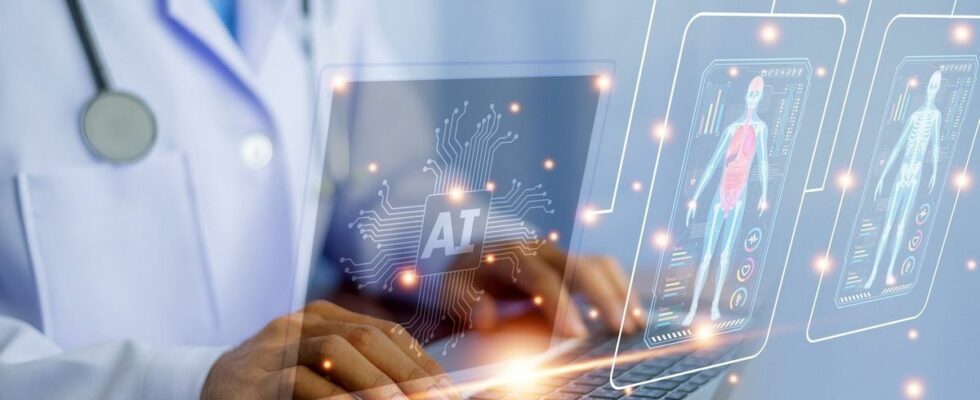Published on
updated on
Reading 2 min.
in collaboration with
Dr Gérald Kierzek (Medical Director of Doctissimo)
Medical validation:
November 21, 2024
According to an American study, ChatGPT appears to be more accurate in its diagnoses than conventional medicine. Decryption from our medical director, Dr. Gérald Kierzek, emergency physician.
If one in five doctors now claims to use artificial intelligence tools like ChatGPT. And the chatbot seems to be more than just a help: today it would surpass doctors. At least that’s what a new American study reveals, published in October 2024 in the journal Jama Network Open.
ChatGPT made a correct medical diagnosis in 9 out of 10 cases
Could ChatGPT soon replace doctors? Yes, according to the results of a survey carried out by Stanford scientists.
In detail, around fifty doctors and interns were recruited for this study. Half of them used ChatGPT to diagnose clinical cases, the other half had access to more traditional platforms, such as medical reference sites or Google. All candidates were given one hour to review up to 6 clinical cases. At the same time, ChatGPT established its own diagnoses on these cases.
Result ? After comparing doctors’ diagnoses (with or without the help of the chatbot) with those made by ChatGPT, Stanford researchers discovered that artificial intelligence made a correct medical diagnosis.in 9 out of 10 cases“.
Impressive performances, which were not equal on the doctors’ side. Those who had access to conventional resources made correct diagnoses in (only) 74% of cases and practitioners using ChatGPT did just a little better (76%).
Results which can be explained by the lack of practice of certain doctors with artificial intelligence… Which did not prevent scientists from being fundamentally surprised.
“I was shocked“, revealed Professor Andrew S. Parsons, director of the study. “Our study shows that AI alone can be an effective and powerful diagnostic tool (…) We were surprised to find that adding a human doctor (to ChatGPT, editor’s note) actually reduced diagnostic accuracy“, he added.
Interesting detail: the majority of doctors did not trust ChatGPT when it suggested a solution contrary to their own diagnosis.
“Only a fraction of doctors realized that they could literally copy and paste the entire file into the chatbot and simply ask it to give a complete answer to the entire question” confirms Doctor Jonathan Chen, one of the authors of the study.
A good reason to review your relationship with AI? Yes, believes Professor Andrew S. Parsons, who indicates that these results should invite as many people as possible to train in AI.
What does Dr. Gérald Kierzek think of these results?
According to the medical director of Doctissimo, ChatGPT cannot “replace doctors“.
“The medical relationship is not limited to making a diagnosis. AI is a diagnostic aid, rapid, exhaustive and it is up to the doctor to contextualize. This allows us to sweep away all hypotheses and refute them or confirm them through additional examinations. Furthermore, the doctor is in an empathetic, supportive relationship… The complementarity is obvious between the two”, reveals the emergency doctor, before specifying that: “For certain specialties (radiology,natomopathology…), AI can on the other hand potentially replace the diagnosis stage.”

